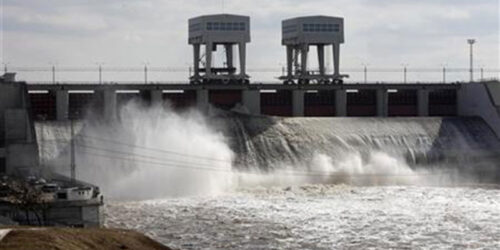PESHAWAR: The Khyber Pakhtunkhwa government has approved a new financial model for the Pakhtunkhwa Hydel Development Organisation (Pedo) allowing the public sector entity to engage private lenders to finance its future projects instead of relying on government funding.
An official familiar with the matter told Dawn that the Pedo Policy Board approved the new financial model on May 7 after thorough overview.
He said the initiative would provide the organisation with financial independence and take effect in the next fiscal.
“Under this new model, the Pedo won’t ask the provincial government to fund its projects,” he said.
According to an official document outlining the concept of the model, the Pedo has embarked on the path to capitalise on its ‘already-constructed and under-construction’ assets to commercially exploit the same for generating the much needed revenue.
It said the idea was to put the organisation on the path of self sustenance and to elevate it to a position where it not only sustains its own self but to provide much needed revenue for the provincial government as well.
The document said in order to achieve the above mentioned goal, a new business model has been drafted on the lines of corporate financing and so as to do away with the conventional method of public sector financing.
It said through the new model, it was envisaged to engage the private sector and inject the capital raised from the market into the construction of new projects.
“In this regard, it has been planned to do away with the conventional method of releases made from the Hydel Development Fund under the provincial government and / or the Annual Development Programme,” it said, adding that instead, effort will be made to raise commercial debt to the tune of at least 75 pc of the cost of ongoing projects under the project finance structure.
The document said for the purpose, the projects, which were feasible under the model, would be converted into special purpose vehicles (SPVs). It said being important from the lenders’ perspective, the SPVs would allow to mitigate the risks of lenders and make transaction bankable.
“At the same time, the liability of sponsor will limited to the SPV and shall not have lien/rights on other assets of the sponsor. Debt servicing shall be met through inflows against power purchase agreement based on NEPRA approved tariff,” it said.
The document said it was estimated that Pedo would be able to generate approximately Rs38 billion through this mode of commercial mobilisation.
It said a major part of the funding would have already been injected by Pedo into the projects against which the amount was raised since the projects were already under construction and funds had been provided by the organisation to meet its cost till date. Accordingly, the raised finances will be diverted to other ongoing or prospective projects.
The official said the organisation has planned to convert four of its ongoing projects including Koto, Karora, Matiltan and Lawi into SPVs and in first phase Koto and Karora would be turned into SPVs.
The document said in order to cover up for any delays during the approval processes and consents from various stakeholders while executing the project finance structure, a backup finance facility to the tune of Rs10 billion would be made available through corporate financing and shall be available for drawdown over a three year period.
“This facility shall be secured through Pedo’s existing operational projects under an escrow arrangement backed by the provincial government’s guarantees,” it said.
The document said a portfolio of almost 930MW projects had also been identified as ripe for exploitation in the public private partnership regime.
It said a substantial portion of the revenues would also come from two main loan agreements with the donor agencies, including Asian Development Bank (Balakot HPP) and World Bank (Gabral–Kalam and Madyan HPPs).
The document added that in order to execute this business model, the Pedo would engage specialised teams to execute the first transactions within a period of one financial year and at the same time, train and equip organisation’s own human resource in order to carry out subsequent transactions along the same lines.





